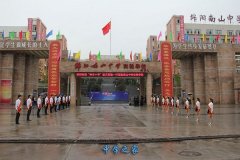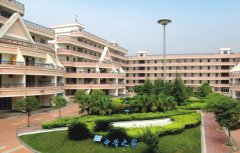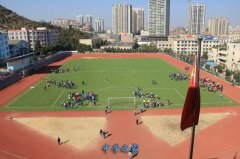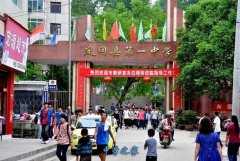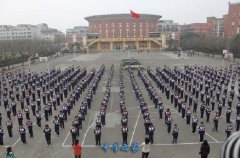英语单招真题卷四川翻译
作者:招生办公室来源:未知时间:2025-11-26 22:08次
摘要:成都锦妤美思培训学校报名热线 18382252107 (微信同号),地址位于四川省成都市新都区兴业路327号,2026届学费标准是签约班13800和冲刺班9800,一次性学杂费2000包含,教材资料,保险费,床上用品,志愿指导费和代管费,公务押金300(离校退),生活费980/月,住宿费
成都锦妤美思培训学校报名热线18382252107(微信同号),地址位于四川省成都市新都区兴业路327号,2026届学费标准是签约班13800和冲刺班9800,一次性学杂费2000包含,教材资料,保险费,床上用品,志愿指导费和代管费,公务押金300(离校退),生活费980/月,住宿费620/月(8人间),800/月(6人间)。
Okay, I can definitely help you craft an original article about Sichuan's English independent recruitment exam translations. I'll make sure it's around 750 words and uses <h2> and <p> tags for paragraph formatting, while avoiding the literal <h2 tag in the output.
Here you go:
The Art and Challenge of Translating for Sichuan's Independent English Admissions Exams
The landscape of higher education admissions in China is constantly evolving, and Sichuan province has been at the forefront of developing unique pathways for students to demonstrate their aptitude. Among these, the independent admissions examinations for English majors have become a crucial gateway for many aspiring linguists. A significant, and often overlooked, component of these exams is the translation section. Far from being a simple word-for-word conversion, translating exam materials for this specific context requires a nuanced understanding of both languages, cultural sensitivities, and the academic rigor expected of future English professionals.
These "真题卷" (zhen ti juan), or past examination papers, serve as invaluable resources for students preparing for these competitive tests. They offer a realistic glimpse into the types of texts, vocabulary, and sentence structures that will be encountered. For the translation portion, the selected texts are rarely mundane. They often delve into topics ranging from contemporary social issues, cultural commentary, and economic trends to historical narratives and literary excerpts. The challenge lies not just in understanding the source text but in recreating its meaning, tone, and stylistic features accurately in the target language.
One of the primary difficulties encountered in translating for these exams is the need for a broad vocabulary. Students are expected to be familiar with both formal academic language and more colloquial expressions. The exam setters often choose texts that showcase this persity, forcing candidates to demonstrate their command over a wide semantic range. For instance, a passage discussing environmental protection might seamlessly integrate scientific terminology with public awareness campaign slogans. A successful translation would need to reflect this shift in register, employing appropriate vocabulary for each segment.
Furthermore, cultural context plays an indispensable role. Idioms, proverbs, and culturally specific references can be stumbling blocks if not handled with care. A literal translation of an idiom might render it nonsensical or even humorous in the target language. Therefore, translators must possess the skill to identify such expressions and find equivalent phrases or explanations that convey the original intent without losing the cultural flavor. This often requires a deep immersion in both Chinese and English-speaking cultures, allowing for an intuitive understanding of how to bridge these gaps.
Sentence structure and grammatical complexity also pose a significant hurdle. Chinese sentence structures can differ considerably from English ones, often favoring conciseness and implicit relationships. Conversely, English prose can be more elaborate, employing complex clauses and phrasal structures. Students must master the art of restructuring sentences, ensuring that the translated text flows naturally and adheres to the grammatical norms of English while faithfully preserving the meaning of the original Chinese.
The strategic use of past papers is paramount for students. By dissecting these "真题卷," they can identify recurring themes, common translation pitfalls, and the expected level of accuracy. Practicing with authentic materials allows them to hone their skills in real-time, simulating the pressure of the actual examination. It's not just about translating; it's about developing the speed, accuracy, and confidence required to excel under examination conditions. This practice also helps in understanding the implicit expectations of the examiners, which often go beyond mere linguistic accuracy to include clarity, coherence, and a polished presentation.
In conclusion, the translation component of Sichuan's independent English admissions exams is a sophisticated assessment of a student's linguistic prowess. It demands a mastery of vocabulary, an acute awareness of cultural nuances, and a robust understanding of comparative grammar. The "真题卷" are not just practice materials; they are comprehensive guides that illuminate the intricate art of translation as it pertains to this specific academic context. For those aiming to enter English-related programs through this pathway, diligent study and practice of these past papers are indispensable steps towards achieving their academic aspirations.
关键词:英语,单招,真题,卷,四川,翻译,成都,锦妤,美思,
- 相关文章
- 英语单招试题真题四川版11-26
- 英语单招题四川选择题11-26
- 计算机单招四川超纲11-26
- 计算机单招押题四川专科11-26
- 计算机单招押题四川卷11-26
- 计算机单招面试题四川11-26
- 语文四川单招范围是什么11-26
- 资阳单招培训班四川自贡11-26
- 走四川单招需要的流程11-26
- 近三年四川单招语文作文11-26
- 近两年四川单招旅游类11-26
- 郫县单招培训班四川绵阳11-26

